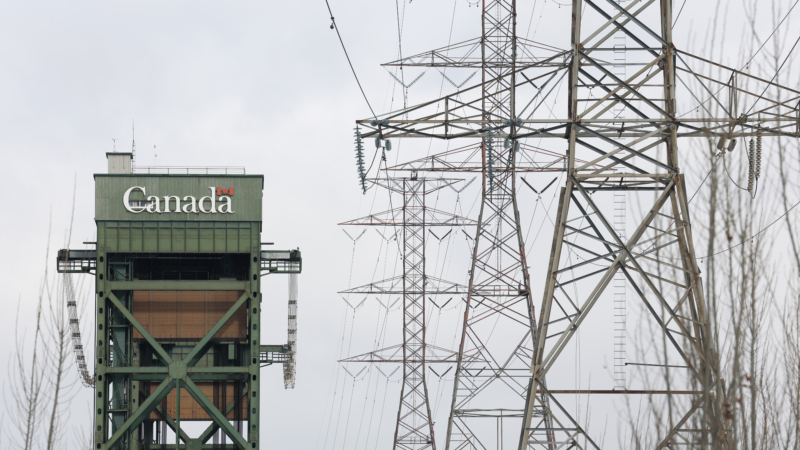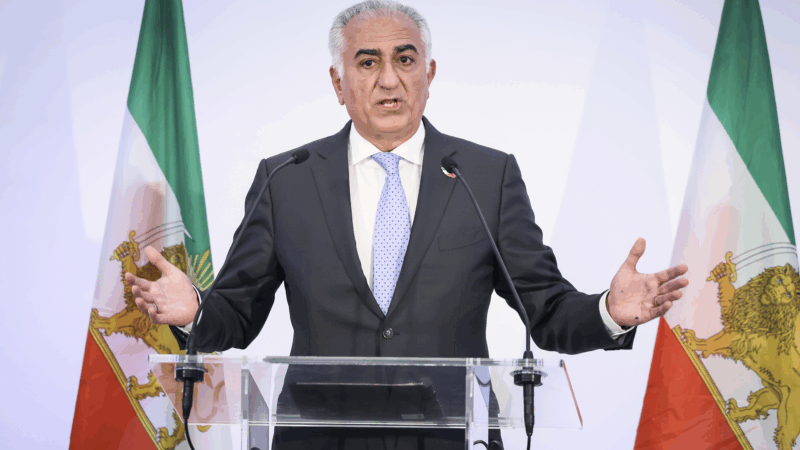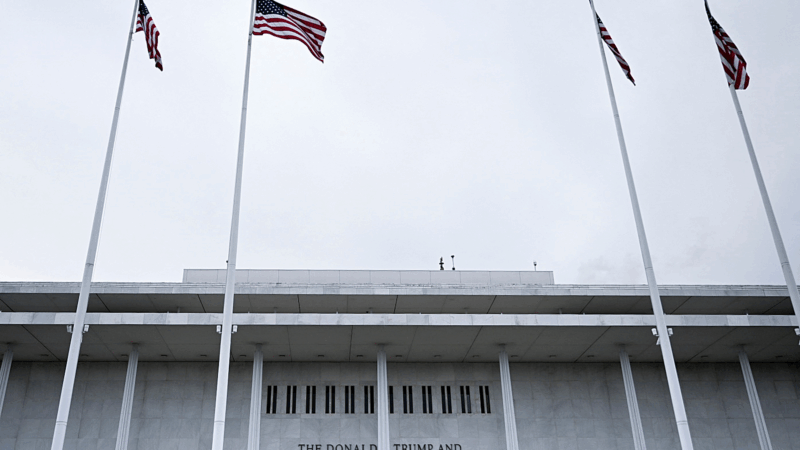The U.S. buys electricity from Canada. Now it’s a focus of the trade war
For more than a century, the U.S. and Canada have sold each other electricity through power lines that criss-cross the border, an arrangement that has historically hummed along thanks to the warm relationship between the two countries. That changed this week.
On Monday, Ontario Premier Doug Ford announced the province was imposing a 25% surcharge on electricity exported to three U.S. states: Michigan, Minnesota and New York. The move was in response to President Trump’s tariffs on Canada.
Trump, a day later, said he would double U.S. tariffs on Canadian aluminum and steel to 50%. “Why would our Country allow another Country to supply us with electricity, even for a small area?” Trump asked in a separate post on his social media site.
Ultimately both sides backed down from their threats and agreed to meet to discuss trade issues. But the whirlwind episode highlighted the U.S. reliance on imported Canadian power — and the fact that some states obtain electricity from their northern neighbor.
Here’s what to know about Canada, the U.S., and the electricity that zips across the border.
The U.S. and Canada share a power grid
More than 30 major transmission lines connect an array of nearby U.S. and Canadian cities and regions. The two countries even operate by the same set of reliability standards, despite the political boundary between them. A massive 2003 blackout cut power to some 50 million people on both sides of the border.
“You have cities and urban areas that are close neighbors, and you have electric systems that are close neighbors,” said Cy McGeady, a fellow at the Center for Strategic and International Studies. “There’s sort of an imaginary line that runs between them called the border.”
Integrated power grids have several benefits, McGeady says. For one, a larger system is more resilient against disruptions and power outages.
Electricity is also cheaper in integrated grids. Power generators with the lowest prices will more easily find buyers in a larger electric system. “There’s a basic economic factor that drives grid integration everywhere,” McGeady said.
Canada says it exports enough electricity to the U.S. to power more than 5.6 million homes.
Why the U.S. buys electricity from Canada
While electricity shared across the border represents less than 1% of the total power generated by both countries, according to the U.S. Energy Information Administration, the trade is critical to ensuring that electric supply meets consumer demand.
In 2023, the U.S. bought $3.2 billion worth of electricity from Canada, while it sold Canada $1.2 billion in electricity, according to U.S. government data. U.S. states and regions near the border — such as New York, New England, the Midwest and the West Coast — typically buy the most Canadian electricity.
According to Seth Blumsack, an energy professor at Penn State University, U.S. electricity operators likely have enough short-term capacity to replace any Canadian power that is withheld or becomes too expensive to buy, but it may come from a different source.
“It’s not like if the Canadian hydro imports get cut off, you’re going to replace it with wind and solar in New England,” Blumsack said. “You’re going to replace that with power plants in New England that are burning natural gas or fuel oil or some other fuel source that is going to increase carbon emissions and may also increase local air pollution.”
States such as New York and Massachusetts have tried to reduce their carbon emissions in part by buying Canadian electricity, which is most commonly generated through hydroelectric power. Trade disputes between the two countries could complicate those climate goals.
What happens if the fight over electricity surges
The recent spat over electricity sales has dimmed the once glowing relationship between the U.S. and Canada, which have both been boosted by the free trade of power, said Asa McKercher, a professor of U.S.-Canada relations at St. Francis Xavier University in Nova Scotia.
“That’s what makes this sort of tariff war really self-defeating for both countries, is the fact that we’ve benefited from access to cheap energy,” he said.
McKercher said some Canadians have argued in the past that the country should export less of its energy to the U.S. and instead share it within its own borders. Those views had typically been dismissed, but more Canadians are coming around to the idea given Trump’s recent attacks on the country, he added.
“Now those arguments are sort of returning again, and I think increasing numbers of Canadians are seeing some wisdom in those suggestions,” McKercher said. “The situation is kind of a reversal of a lot of past history, in which the trend has been towards integration of continental energy resources.”
In the short term, analysts say further disputes between the U.S. and Canada over electricity shared across the border will mean higher electric bills for consumers.
“It made economic sense to build these transmission lines and to move power back and forth across the border,” McGeady said. “If you disrupt that, the impact has to be upward pressure on prices and reduced reliability. That’s what the fundamental risk is here.”
Veteran actor T.K. Carter, known for ‘The Thing’ and ‘Punky Brewster,’ dies at 69
T.K. Carter gained fame as Nauls the cook in John Carpenter's 1982 horror classic, "The Thing."
Who is Reza Pahlavi, the exiled Crown Prince encouraging demonstrations across Iran?
In exile for nearly 50 years, Iran's Crown Prince Reza Pahlavi has issued calls urging Iranians to join protests sweeping the country. But support for him may not be clear cut.
US launches new retaliatory strikes against ISIS in Syria after deadly ambush
The U.S. has launched another round of strikes against the Islamic State in Syria. This follows last month's ambush that killed two U.S. soldiers and an American civilian interpreter.
6 killed in Mississippi shooting rampage, authorities say
The alleged gunman, 24, has been charged with murder after the Friday shootings in northeast Mississippi. The victims include his father, uncle, brother and a 7-year-old relative, authorities said.
Washington National Opera leaves Kennedy Center, joining slew of artist exits
The WNO is just the latest to say they will no longer perform at the Kennedy Center since Trump took over last year.
Ukrainian drones set fire to Russian oil depot after Moscow launches new hypersonic missile
The strike comes a day after Russia bombarded Ukraine with hundreds of drones and dozens of missiles, including a powerful new hypersonic missile that hit western Ukraine.






